Oksana Kudas
The Universe.Space.Tech Project Manager
In the dark, bright people are clearly visible.
— Erich Maria Remarque
Olena Ivanivna Kazymyrchak-Polonskaïa was a gifted astronomer, theologian, and missionary. She specialized in studying the motion of small bodies in the solar system, primarily comets. She was a professor of philosophy, professor of physical and mathematical sciences, and professor of astronomy. She secretly took the veil and persistently preached God’s Word all her life, despite prohibitions, dismissals, and arrests.
Carefree youth
Olena Ivanivna Kazymyrchak-Polonskaïa was born on November 21, 1902 in the family of a petty nobleman. Unfortunately, little has been written about Olena’s young years. It is known that her childhood was spent in the small village of Sielets in Volhynia. Those early years were carefree and devoid of troubles, and her mother gently called her Lola. Olena had a sharp mind. She was well versed in both humanities and sciences. She brilliantly graduated from the women’s gymnasium in Lutsk. She was fluent in English, Polish, Ukrainian and German.
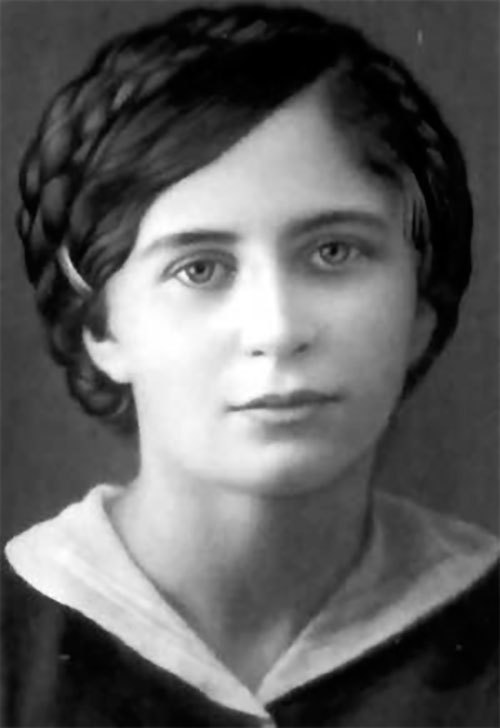
According to Peace Treaty of Riga (1921), Volhynia was ceded to Poland. So one day the girl suddenly found herself in other country. To enter the Polish University in Lviv, she had to retake exams in all subjects. Moreover, for the sake of admission, Olena also took an external course in ancient Greek and Latin. Eventually, in 1922, the girl entered the Jan Kazimir University in Lviv to the Faculty of Physics and Mathematics, the Department of Astronomy. To help her mother, Polonskaïa also had to work at a court office as a clerk.
Under the rule of the Polish–Lithuanian Commonwealth
After graduating from the university in 1928, Olena started working at the Lviv Observatory, and in 1932 she was invited to work in Warsaw by the famous professor Mykhailo Kaminsky. There she began her career as a freelance assistant at the Astronomical Observatory at the University of Warsaw. In 1934 Polonskaïa defended her doctoral dissertation “On the planet-centric motion of comets” and became a doctor of philosophy.
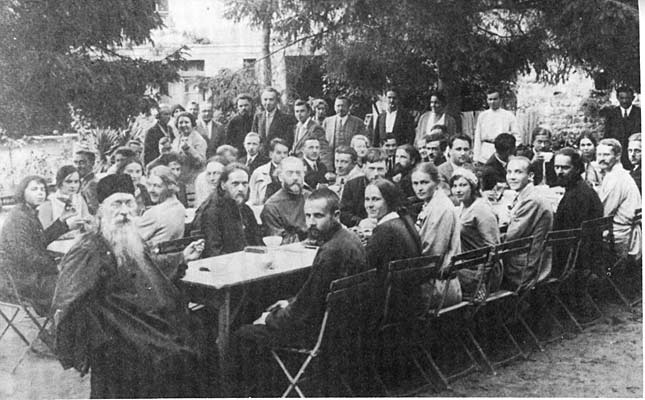
In her scientific work, she studied the motion of comets. Unlike asteroids, their motion is affected by non-gravitational forces that occur when a comet comes close to the Sun. Under the influence of solar heat matter begins to evaporate from the surface of the comet. As a result of evaporation there is a reactive effect, which leads to the acceleration of its nucleus. Effectively this acceleration can both reduce and increase the speed of the comet’s motion around the Sun, depending on a combination of a number of factors. Therefore, determining the values of non-gravitational accelerations is an important task and a significant scientific problem.
At the age of 34, Olena married Leon Kazymyrchak, an ichthyologist who also worked at the University of Warsaw. In 1937 their son was born, named Serhiy after Polonskaïa’s spiritual mentor, Archpriest Serhiy Bulgakov. Unfortunately, in 1939 the Second World War destroyed the quiet and peaceful life of Olena Ivanivna Kazymyrchak-Polonskaïa.
Stormy times. World War II
The war caught Olena Kazymyrchak-Polonskaïa in Lviv, where she worked at the astronomical observatory. In 1941, during the occupation, she risked her life to save Polish officers. As a university professor, the woman gave them observatory internship certificates so they could leave the city.
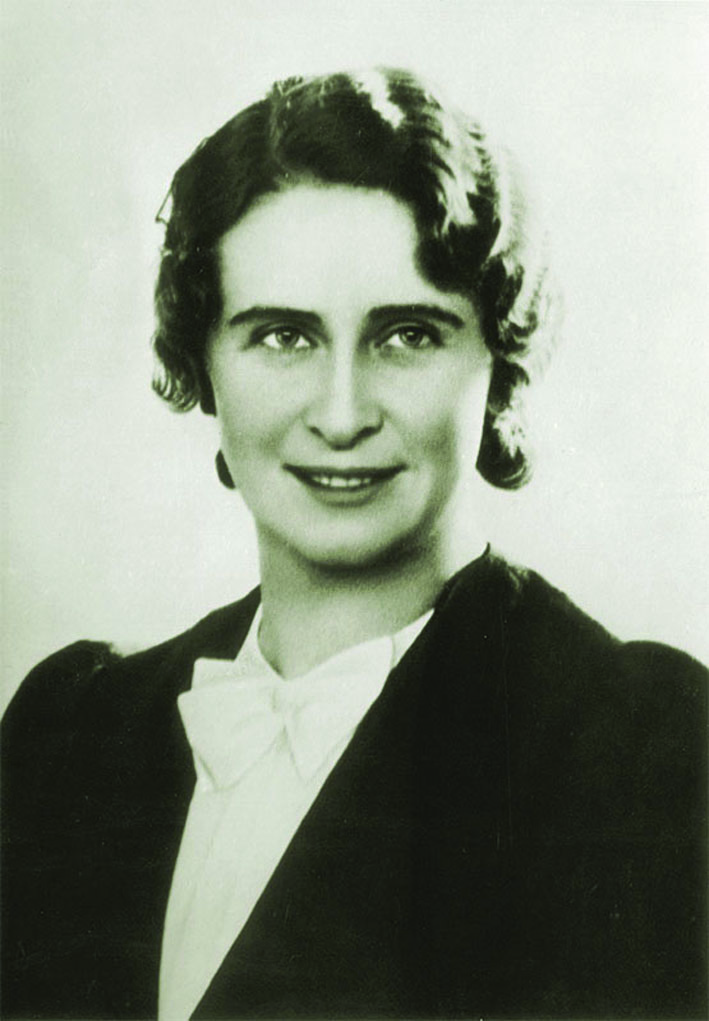
She later moved with her family to Warsaw, where she tutored in mathematics. In 1944 an uprising broke out in the city. Polonskaïa and her son managed to leave before the outbreak of hostilities, but her mother and husband were trapped. After suppressing the riot, Germans drove all the inhabitants to several camps outside the city.
Searching for missing relatives, Olena Ivanivna visited one concentration camp after another, leaving little Serhiy with acquaintances and distant relatives. According to Kazymyrchak-Polonskaïa herself, she had to walk almost half of Poland during the search.
The woman told about an incident when she miraculously escaped execution in Warsaw. It was already cold, and she decided to take warm clothes from her Warsaw apartment. On the way home during the curfew, Olena was detained by a German military patrol. As she did not have a pass, she could be shot on the spot. Then she addressed the soldiers in German: “You are also Christians. Mothers, daughters and wives are waiting for you at home. How can you kill a defenseless woman who just came to get warm clothes in her apartment to save her husband and child? ” And the patrol released her.
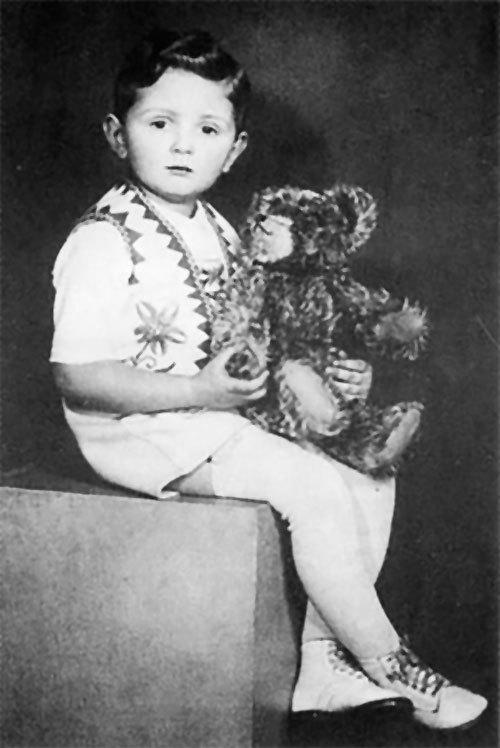
After a long search, Olena learned that her relatives were separated: her husband was taken to work in Austria, and her mother was transferred to another camp — for senior prisoners. Eventually, the daughter found her mother in one of the Red Cross camps. As for her husband, Olena Ivanivna never saw him again.
Moving to the Soviet Union
In April 1945, Polonskaïa reached Prague. The Soviet consulate announced the quick voluntary repatriation of all comers. Scientists were guaranteed a great future — a job, an apartment, all kinds of assistance. The soviet officials assured her that the country needed specialists of her level. They promised to find her husband and help them reunite. And Olena Ivanovna believed. In May, she moved to Kherson with their mother and son.
The reality she had to face in the USSR was strikingly different from the promises. Her husband was never allowed to move to the Soviet Union. The Polish professor’s diploma was not recognized. The reason was ignorance of the history of the Communist Party and the ideas of Marxism-Leninism. Olena taught mathematical analysis and astronomy at the Kherson Pedagogical Institute, working 17 hours a day. At the same time, she was working on her PhD thesis.
Polonskaïa had almost no time for a child under such a load. In 1948 the boy fell ill. Doctors could not set a correct diagnosis for a long time, but treated Serhiy for typhoid fever instead of meningitis, from which he died. The mother was not allowed to see her child. After her son’s death, Olena begged the institute’s management to allow him to be buried according to a Christian ritual. However, her request was denied. But the ban did not stop her — at night she and the priest secretly held a church service.
After the death of her son, Olena moved to Leningrad, where she entered the Institute of Theoretical Astronomy of the USSR Academy of Sciences. In 1950 she defended her dissertation on “The close convergence of comets with the planets and the planet-centric motion of comets” and received the degree of Candidate of Physical and Mathematical Sciences (analogous to Doctor’s degree in the West).
The public enemy
In November 1951, as a part of a new round of witch-hunting for “public enemies”, Kazimirchak-Polonskaïa was fired under a formal pretext: downsizing. And on January 25, 1952, she was arrested on suspicion of “espionage and anti-Soviet activities.” She spent nine months in Butyrka prison.
Here is how she described her imprisonment:
“The first investigator flew at me like a hawk from a height, called me “bastard, bitch” with satanic rage… “Don’t make excuses for anything! Confess your crimes!” Now I wanted to jump up and smash my head against the wall so that my brains were at his feet, and shout, “I’m not guilty of anything!” I bit my veins four times. And I thought God would forgive me. It’s like a commander shooting himself when he is taken prisoner, so as not to betray the state secrets under torture. They demanded that I tell about others… I would prefer to die, but they pressed so hard. And I started lying so as not to betray… and got confused… Every-night interrogation lasted for 8-10-12 hours in a row. During the day you are not allowed to lie down, forced to walk around the room and fall on the wall, only in the evening you fall asleep for 1.5-2 hours — and then you are woke up and led along corridors… 9 months!”
During interrogations, Polonskaïa stubbornly denied any guilt, and openly spoke about her faith in God. Such great was the strength of her conviction that the investigator in charge of her case believed in Christ. He managed to secure the release of Olena Ivanovna, and she was totally exculpated.
While Kazymyrchak-Polonskaïa was under arrest, her aged mother was taken to a psychiatric hospital, where she died. After leaving Butyrka Prison, Olena Ivanivna found herself absolutely lonely.
Dedication to astronomy. Research activities
At the end of the summer of 1952, Olena Ivanivna moved to Odessa, where she worked as an associate professor at the Department of Higher Mathematics at the Odessa Pedagogical Institute. In 1956 she returned to Leningrad. There she worked for many years at the Institute of Theoretical Astronomy of the USSR Academy of Sciences, and then at the Pulkovo Observatory, devoting herself entirely to science.
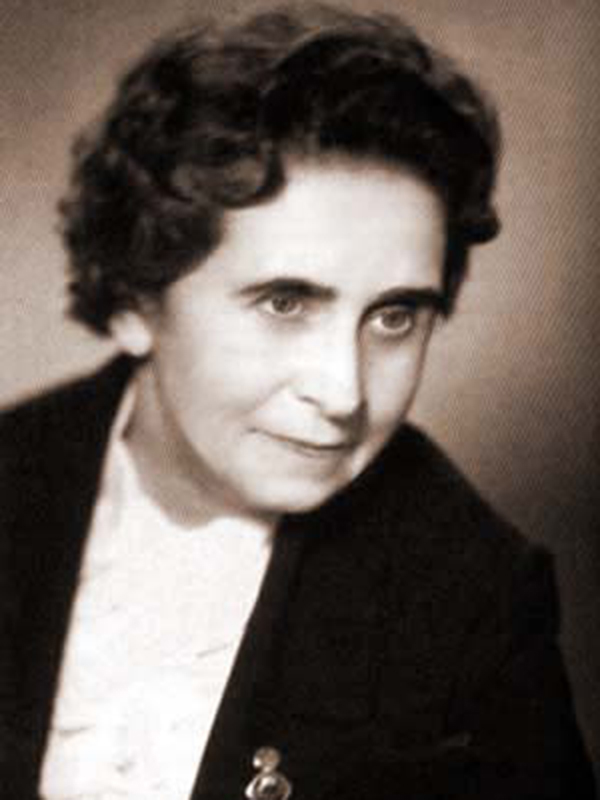
At the age of 54, Polonskaïa mastered a new skill — computer programming. She prepared a huge array of data on the movement of comets over 400 years. Based on her own methods and programs, she developed a continuous numerical theory of Wolf comet for the entire historical period of its observations (1884-1984).
Victor Shore, Doctor of Physical and Mathematical Sciences, a leading researcher at the Institute of Applied Astronomy of the Russian Academy of Sciences, recalls that Polonskaïa set an ambitious goal to study the motion of all known short-period comets on computers. To do this, she created a fund of coordinates of the perturbing planets on punch cards. Her workability inspired legends. Sometimes Kazimirchak-Polonskaïa did not leave the control room for 24 hours. Her research was many years ahead of similar work in the West.
In 1968, Kazymyrchak-Polonskaïa defended her doctoral thesis on “Theory of motion of short-period comets and the problem of their evolution.” She was awarded the degree of Doctor of Physical and Mathematical Sciences. In the same year she became a laureate of the prestigious F. Bredikhin prize of the USSR Academy of Sciences “for the large series of works in the period 1961-1968, devoted to the construction of numerical theories of motion of short-period comets, the problem of the evolution of their orbits on an age scale and the study of comets”.
Since the 60’s to the 90’s Polonskaïa wrote more than a hundred of works in astronomy. She became a member of the International Astronomical Society. Her research interests include celestial mechanics and the motion of comets.
Missionary and theological activities
The story of Olena Ivanivna Kazymyrchak-Polonskaïa would be incomplete without mentioning her faith. She turned Christian in her early youth. In 1923 she took an active part in the first congress of the Russian Student Christian Movement (RSHD) in the town of Prerov, where she met Archpriest Fr. Sergei Bulgakov, who became her spiritual father.
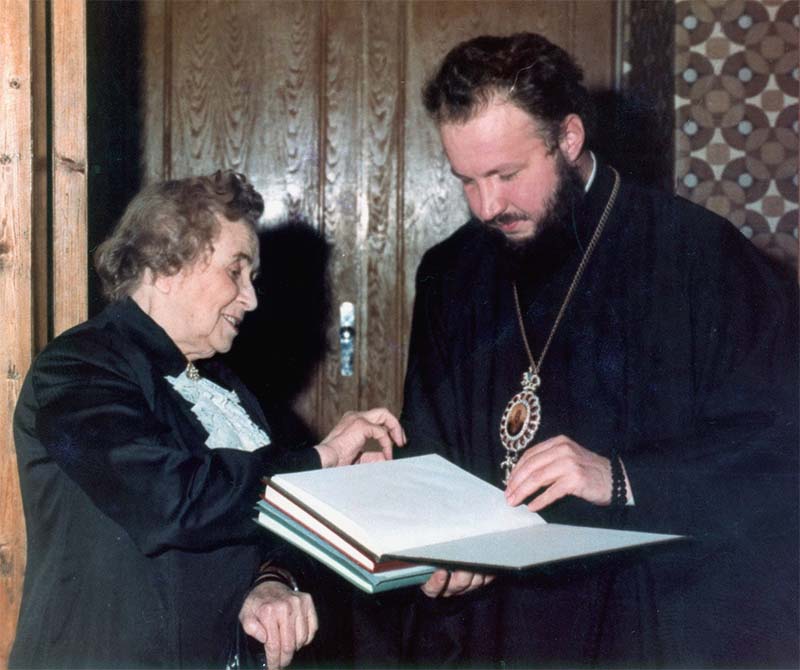
Polonskaïa never concealed her faith in God. In the 1960s, she organized an illegal theological circle in her apartment. Like-minded people gathered around her to discuss religious topics, and read spiritual literature. From 1980 to 1990 she worked actively in the Russian Orthodox Church in the Department of History and Biblical Studies, taught theology at the Leningrad Theological Seminary, and in 1987 secretly took the veil.
An epilogue
At the end of her life, Olena Ivanivna went completely blind, but continued to teach and give lectures. Polonskaïa’s favorite word was “responsibility.” She often reiterated that a Christian should be responsible for everything: deeds, actions, words, even thoughts. Humility, in her opinion, is the acceptance of the existing living conditions, the circumstances sent by the Lord, and wise, responsible behavior in a given situation.
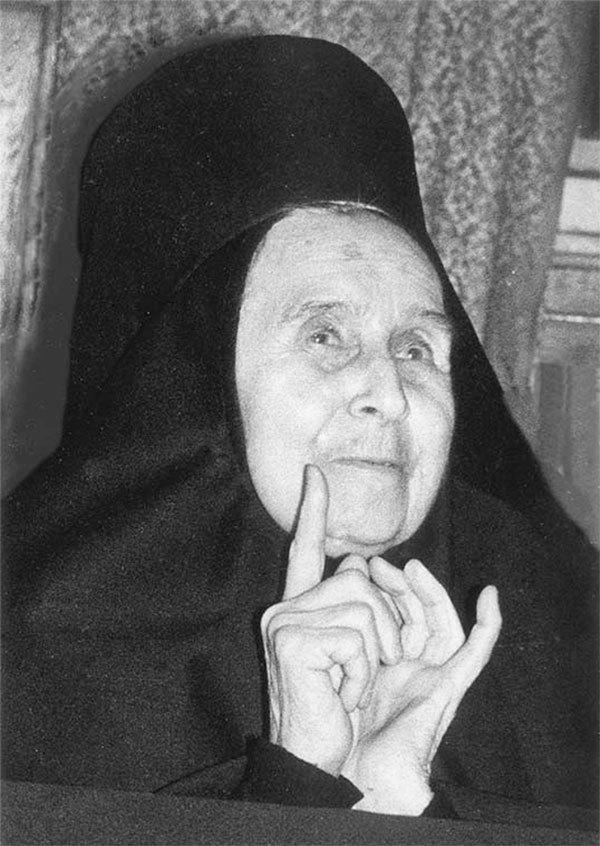
Olena Ivanivna was a talented scientist and a person with a big heart. She left a huge scientific legacy. She proved that the main factor that leads to changes in cometary orbits is the influence of large planets. She substantiated the hypothesis of the capture of short-period comets by large planets. She worked out the general laws of the evolution of cometary orbits. She studied the motion of 35 short-period comets of different planetary families, taking into account their perturbations. In 1978, a small planet was named after her (2006 Polonskaïa). There was a joke among Olena Ivanivna’s colleagues that she is able to “shave” any comet with the razor of her perseverance and intelligence (in ancient times comets were called “tailed monsters” or “hairy stars”).

Olena Ivanivna Kazymyrchak-Polonskaïa passed away in August 1992. She was buried in the cemetery of astronomers near the Pulkovo Observatory close to St. Petersburg.
Follow us on Twitter to get the most interesting space news in time:
https://twitter.com/ust_magazine

